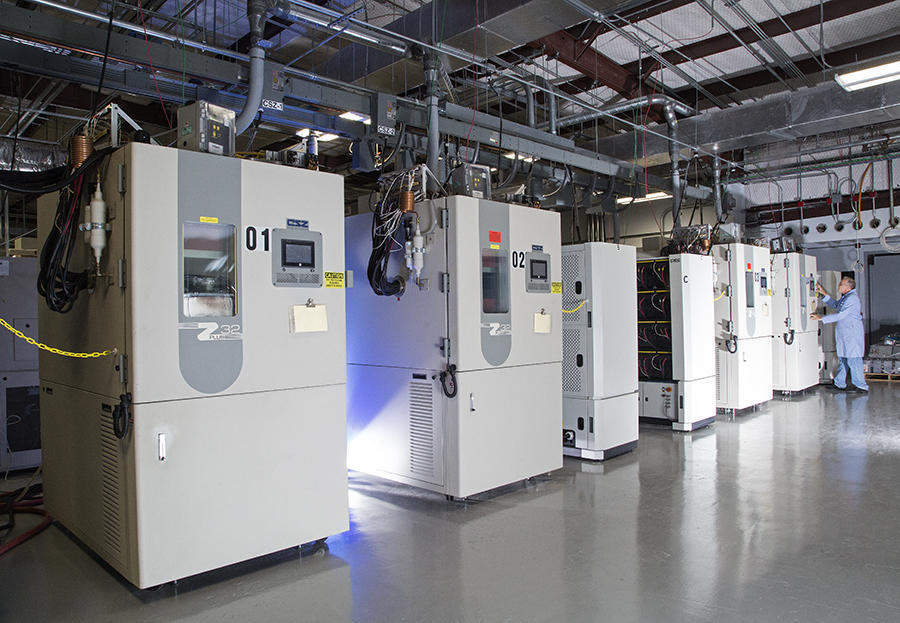
Featuring SwRI technology, the new facility comprises 10 battery testing chambers which allow technicians to run prescribed charge/discharge cycles under extreme temperature conditions in environmentally controlled units.
Additionally, the facility comprises a separate, specialized chamber, which where SwRI evaluates battery limits through abuse testing including penetration, crush, vibration, drop, accelerated aging, fire/flammability resistance, corrosion and overcharging to evaluate their limits.
SwRI’s Spark Ignited Engine R&D department director Dr Terry Alger said: “As manufacturers ramp up development of next-generation energy storage and vehicle electrification, this new facility gives us the flexibility to expand client services in battery performance and characterization, lifecycle assessment, and aging, temperature and abuse testing.
“We now have 10 times the laboratory space devoted to energy storage research and testing. This much larger footprint means better service for our customers.”
The SwRI technology is designed to evaluate and develop battery and energy storage systems for electric, plug-in and hybrid electric vehicles; grid storage; flywheels; and stationary systems such as flow batteries for electric power grid applications, SwRI said.
SwRI advanced combustion & emissions, engine & vehicle r&d, engine, emissions & vehicle research assistant director Christopher Chadwell said: “Batteries by far are the most expensive components in electric and hybrid vehicles.
“Manufacturers want to develop better batteries and systems more cost-effectively. This new facility makes SwRI well-positioned to help clients develop next-generation battery and energy storage systems.”
SwRI said that it has tested more than 40,000 batteries ranging from cells to packs to grid storage systems, for customers in automotive, military and energy industries, since 2010.
The facility is also equipped to conduct battery benchmarking for the Energy Storage System Evaluation and Safety Consortium (EssES).
SwRI engineers are working to make batteries safer, extend their range and advance battery performance in order to meet federal guidelines which require vehicle efficiency and reduce emissions for vehicle manufacturers.






